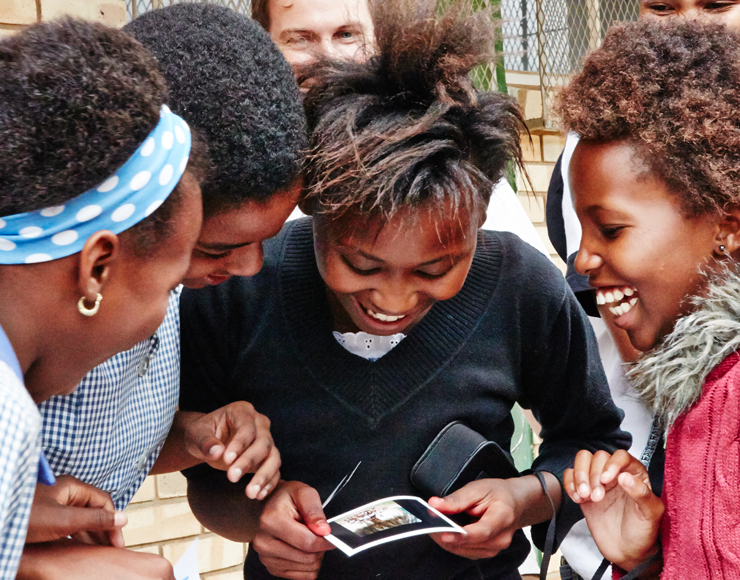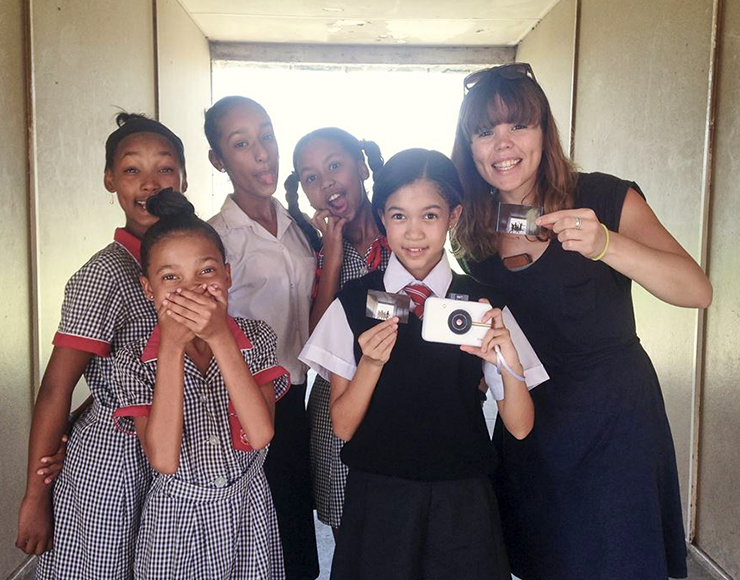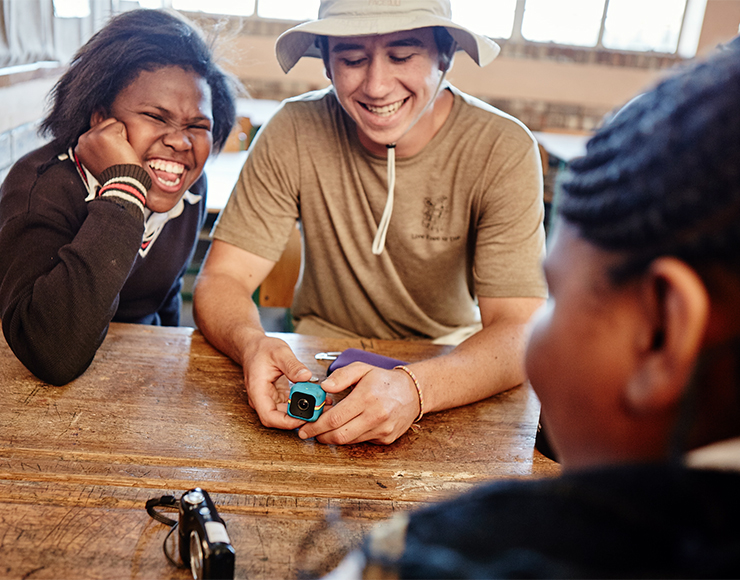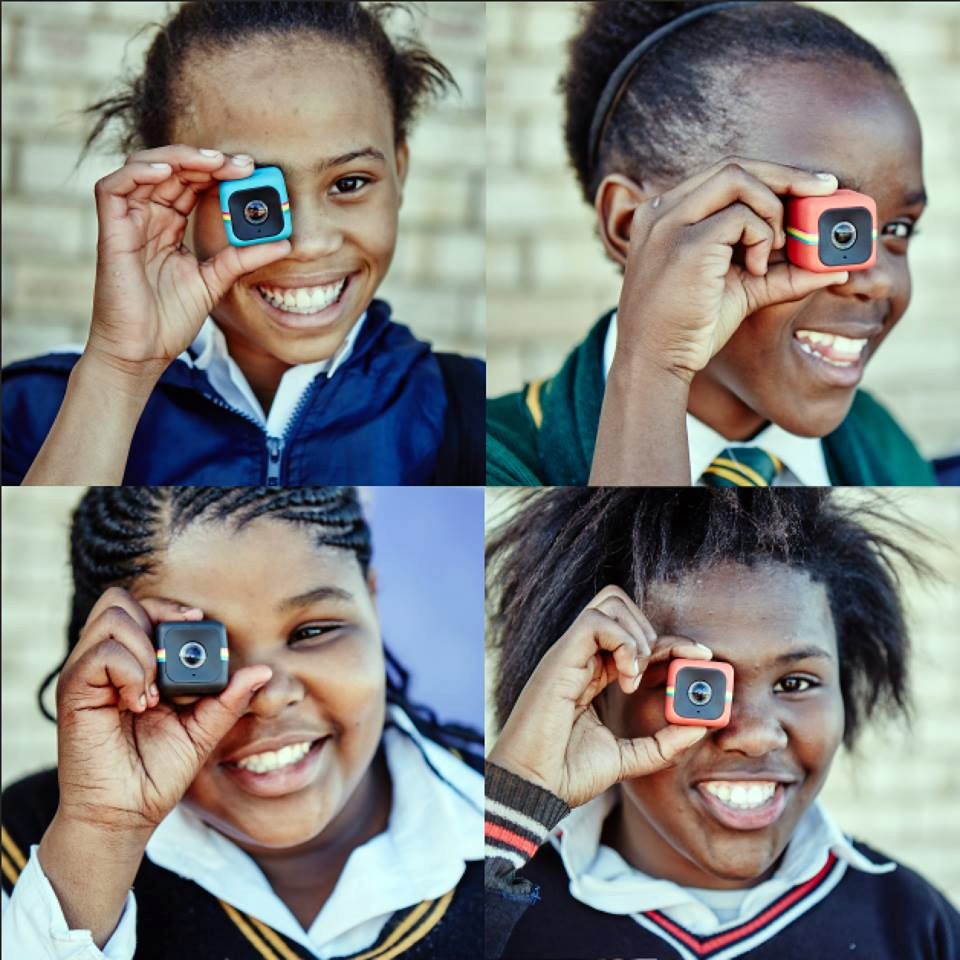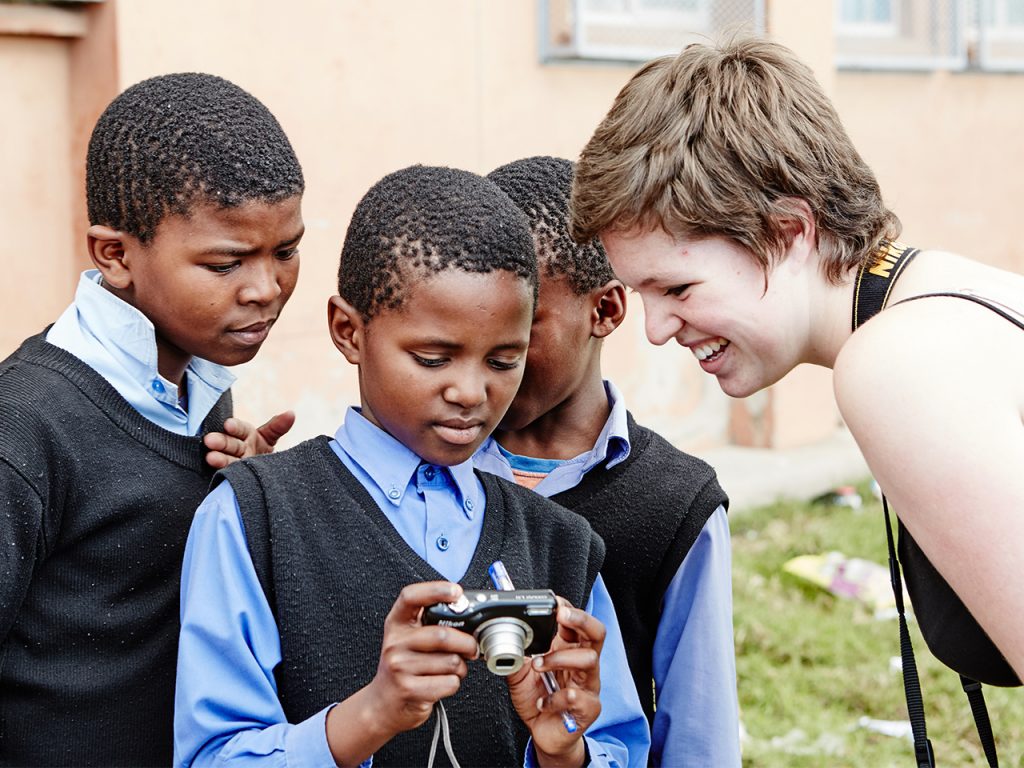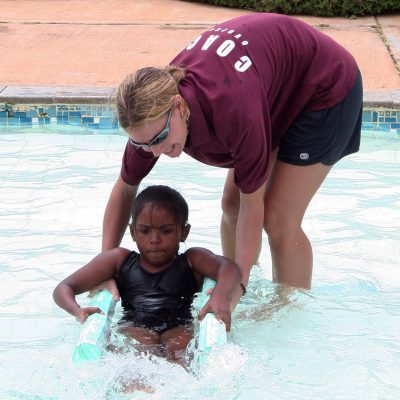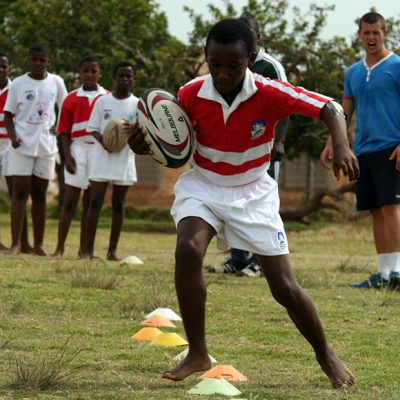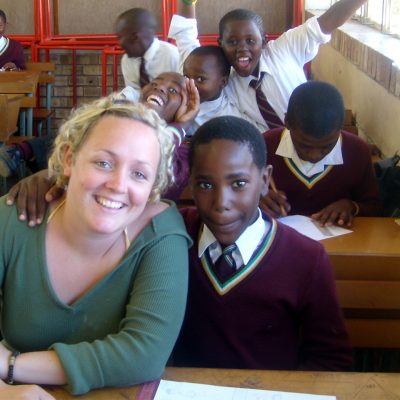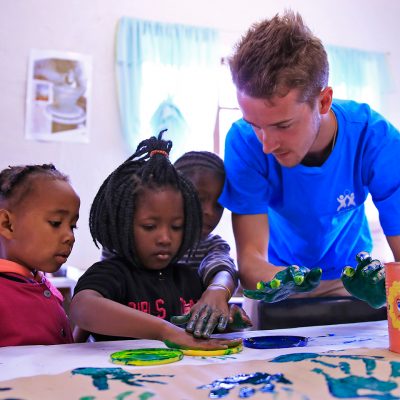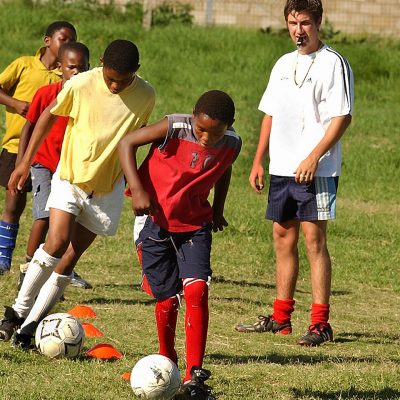Example Lessons
Your lessons will be spread across a number of the township schools in Port Elizabeth and each will be 1-1.5 hours each and you will have 5 pupils aged 10-15 years old in each lesson. As a general rule your teaching days will be Tuesday, Wednesday, Thursday and Friday with the weekends off. On Mondays you will be preparing your weeks lessons and finishing up some work from the last weeks lessons. This may involve scanning negatives, going through students photos and making notes ready to share with them.See example lessons below.
Lesson 1 – Basic camera operations for the basic digital cameras, workshop on how light works using torches, tracing paper etc. They pick an item and shoot A, B, C etc outside, they then shoot A, B, C etc outside using found objects/natural situations.
Bring image examples of this printed out to show them (we can work on this together one day)
Lesson 2 – Working with people, how to get them to pose, where to pose them, think about the light (based on previous lesson). Focus on working with people as a subject in formal portrait situations but also natural (more documentary). Working in pairs (including using us where needed), bring printed image examples out to show them (we can work on this together one day) Also old school photos of us could be quite fun! (if we can leave them with at least 1 digital camera we set them up to shoot class mates school portraits for the school/parents)
Homework – take film camera (after brief how to reminder) and photograph A, B, C etc. to cover what they have learnt, so light types, people posed, documentary, and then whatever they want to show us. We will then collect the films for them and develop them and make a contact sheet.
Lesson 3 – Sports/events. We will get them taking photographs of sports activities happening at school, explaining about shutter speeds etc angles for certain sports, i.e right behind the goal of a football game or under the net of a basketball court, in the middle of a rugby scrum etc.
Bring printed image examples out to show them (we can work on this together one day). If we can leave them with at least 1 digital camera we set them up to shoot sports days and school events for the school/parents.
Lesson 4 – The big reveal. We show them the films, then their printed contact sheets and we edit down to maybe 3-4 photos each person. Discuss why they are chosen, what they are saying, what the whole story is as a set etc. Create discussions between themselves
At least one lesson will be kept open for you to teach a lesson of your choice so have a think about what you might like to do.
Holiday Camps
Although the majority of your placement will coincide with the school term, there may be times when there is a week or two of school holidays. However, there is no less need for your placement during the holidays and you will still be able to get involved in your activity (and others if you would like to!) for around 3-4 hours a day. Typically there will be arts and crafts, music and drama sessions, as well as the opportunity to organise fun and educational activities at the local orphanage.
The beauty about the holiday camps is that you will be able to go to different locations, giving other children the opportunity to join in the activities. The holiday camps really are something that the children have come to depend on and really enjoy.
Equipment Donation for South Africa
We are dedicated to sustainable development. This is why part of the fee you pay goes towards buying decent equipment for beneficiary organisations in South Africa. You will often use this equipment during your project and it is always left with the community when you leave. In some cases, an equipment donation may not be appropriate so a financial contribution is made instead. We are constantly trying to create photography book libraries for the children so if you have any books you would be happy to donate or if you see any in charity shops and would like to help out they would be really gratefully received.
Social Life in South Africa
We believe it is important to give our volunteers the chance to unwind and have fun while they are away. Our in-country team therefore organises a variety of social activities to bring volunteers together, to share their experiences and, above all, have a good time. The social life in South Africa really is second to none and you will return home with some truly unforgettable memories and friends for life. With so many sporty people living together, social sports teams are pretty much unavoidable and there are plenty of local teams to play for. For the less competitive, why not head to the beach for some casual volleyball and football matches in the African sunshine?
And, if animals are your thing, volunteering in South Africa is an ideal choice. With trips to Kragga Kama Game Park, the Lion Park, the Addo Elephant Park and the Oceanarium, you will certainly experience your fair share of big game and African wildlife. You’ll also get the chance to experience a Boma (an authentic South African meal under the stars). What more could you want from a social life abroad?
Travel and Adventure in South Africa
Port Elizabeth is a hot-spot for travellers worldwide and with its abundance and variety of exciting activities there is no wonder why. You will be able to experience all the delights of the local area, including the game reserves, its renowned scuba schools and friendly nightlife, as well as its 40km of golden beaches which include Nelson Mandela Bay. We also provide access to a whole assortment of extreme sports and adventurous activities for you to try out – if you can muster up the courage!
These include: mountain biking, camping, shark diving, bungee jumping, 4×4 safaris, golf, fishing, scuba diving, parachuting, horse riding, dune boarding, boogie boards, deep sea cruises, tennis, squash, kayaking, badminton, water skiing, coastal hiking, power kiting and more!
Time will also be available for you to travel around Southern Africa, and beyond. Head west to Cape Town and the legendary Table Mountain, or veer north to Namibia, and the deadly skeleton coast. Our in-country staff will be able to advise on safe ways to travel and will be only too happy to suggest some of the best sights to see in Southern Africa.
Accommodation
Your accommodation is basic but comfortable and you will stay in a dormitory style room. The accommodation has a very sociable atmosphere and you will find it a great place to relax and unwind in the evenings. The accommodation is also centrally located to your volunteer project with shops and other useful amenities either a short walk or taxi ride away. With so many volunteers living together, you will soon find our communal house your new home, away from home.

